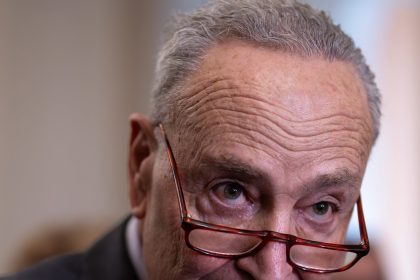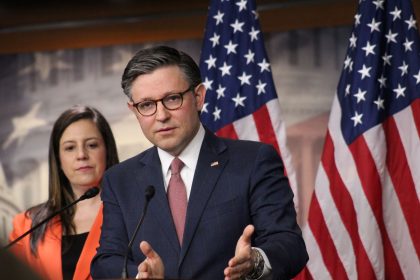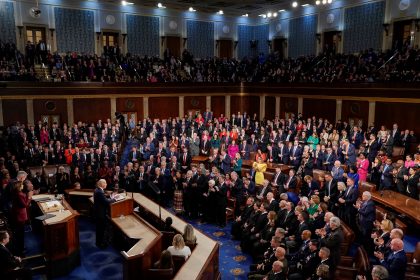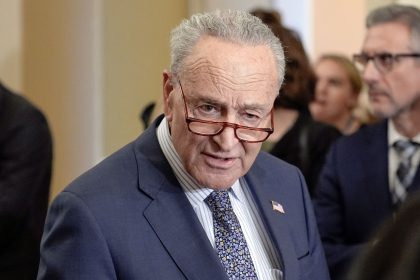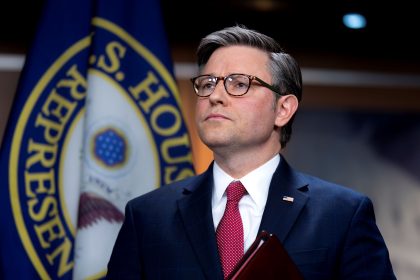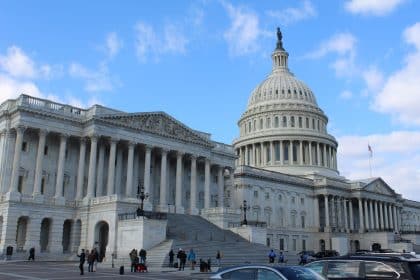Blue Dogs Pan Trump Budget Proposal, Call for Bipartisan Effort to Fix It
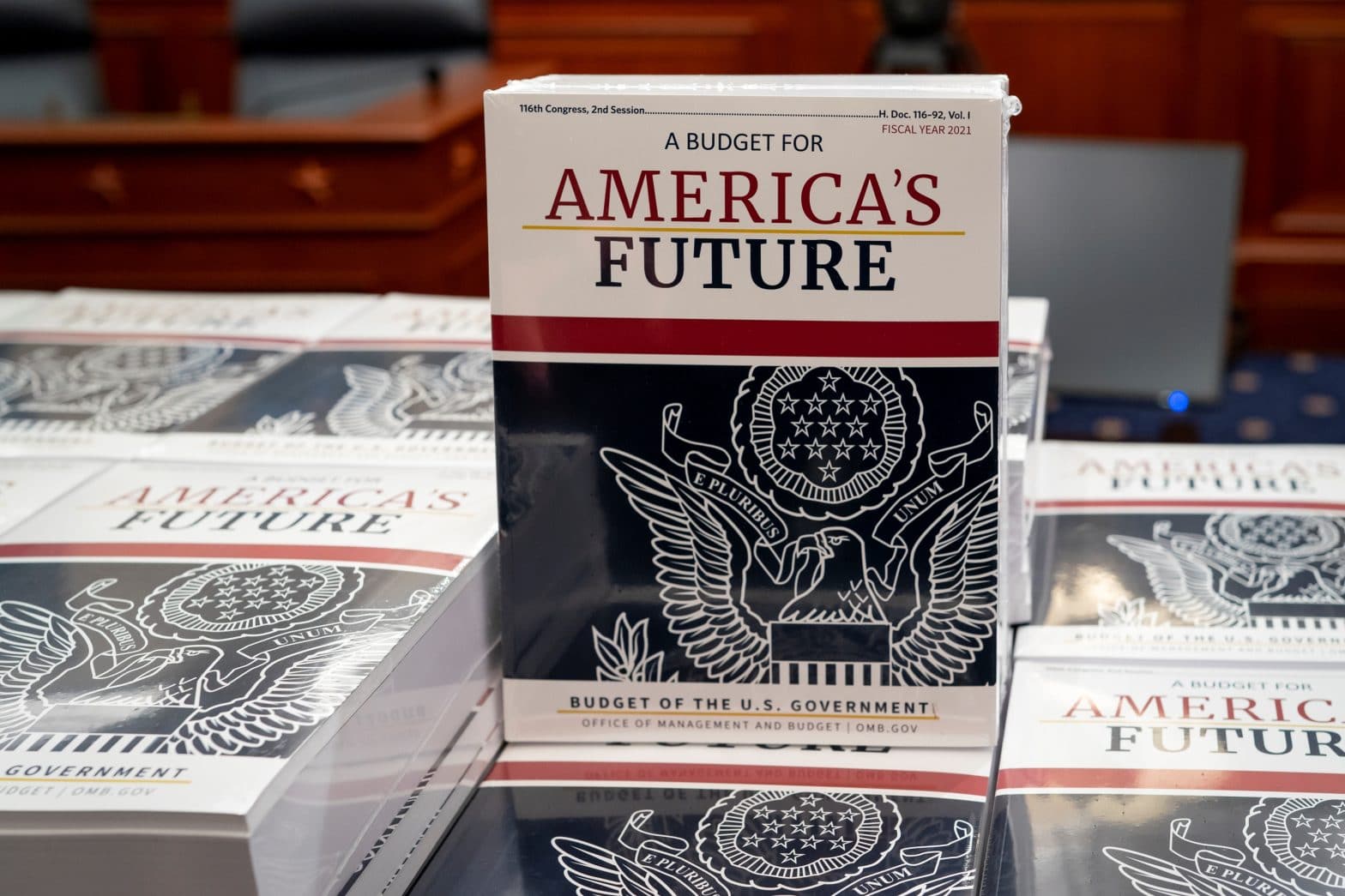
WASHINGTON – President Donald Trump’s $4.8 trillion election year budget plan was largely panned on Capitol Hill and elsewhere Monday as just the latest example of a lack of fiscal discipline in the nation’s capital.
Trump’s fiscal 2021 plan does promise the government’s deficit will crest above $1 trillion only for the current budget year before steadily decreasing to more manageable levels, but only by relying on optimistic economic projections, dramatically scaled-back military operations overseas, and proposed cuts to agency budgets that run directly opposite to two previous budget deals Trump has signed with Congress.
“This year, we are facing a $1 trillion annual deficit and an unprecedented $23 trillion national debt, and a lack of fiscal discipline is forcing us to pay more on interest incurred on the national debt than we spend on our kids,” said Rep. Lou Correa, D-Calif., of the Blue Dog Coalition.
“In other words, a lack of fiscal restraint is already forcing us to spend more on our past than we invest in our future,” he said.
The administration’s budget plan — which Trump says sets the stage for “continued American dominance and prosperity” — recycles deep, previously rejected cuts to domestic programs like food stamps, Medicaid, and housing as the recipe for wrestling the federal budget back into balance.
Coming up with a compromise plan this year will be difficult, with Democrats in control of the House and tensions from the just-concluded impeachment trial continuing to roil the city.
Michael A. Peterson, CEO of the Peter G. Peterson Foundation, a think tank devoted to reining in the federal deficit, said the proposed budget relies far too much on these “unlikely budget cuts” to achieve deficit reduction.
“The reality is that in order to manage our rapidly growing debt, we need to address the big issues – the aging of our population, rising healthcare costs and inadequate revenues,” Peterson said.
“Over the long term, our fiscal path represents an intergenerational injustice that funds current consumption over investment, and passes the bill to our kids and grandkids,” he added. “With interest costs already at $1 billion a day and doubling every ten years, we are not taking the right steps to build the future we want.”
Robert Bixby, executive director of The Concord Coalition, a nonpartisan policy group that advocates for better federal budgeting, said what Trump’s budget does best “is illustrate how deep the fiscal ditch has become over the past three years and how difficult it will be to get out of it without putting everything on the table.”
Bixby then went on to compare past Trump Administration budgets with the plan released Monday.
In the president’s first budget, Bixby said, the Office of Management and Budget projected a deficit of $456 billion (2 percent of GDP) in 2021. The latest budget projects a deficit of $966 billion (4.1 percent of GDP) in 2021.
“The rapidly deteriorating change comes from about $300 billion less in projected revenues and $200 billion more in projected spending,” Bixby said.
“A goal of reducing the debt-to-GDP ratio is sound and the administration’s targeted level (66 percent in 2030) is not beyond possibility if a concerted effort is made,” he continued. “That effort, however, would require bipartisan participation, which the lopsided nature of the deficit reduction proposed in this budget is not aimed to produce.
“Even with rosy economic assumptions and proposed spending discipline that flies in the face of recent experience, the president’s budget would still be in deficit over the next 10 years,” Bixby concluded.
Trump’s budget follows a familiar formula that exempts seniors from politically toxic cuts to Medicare and Social Security while targeting benefit safety net programs for the poor, domestic programs like clean energy and student loan subsidies.
It again proposes to dramatically slash funding for overseas military operations to save $567 billion over 10 years but adds $1.5 trillion over the same time frame to make his 2017 tax cuts permanent law.
Trump’s proposal would cut $465 billion from Medicare providers such as hospitals, which prompted howls from Democrats like former Vice President Joe Biden, who said it “eviscerates Medicare,” while top Senate Democrat Chuck Schumer of New York said Trump is planning to ”rip away health care from millions of Americans” with cuts to Medicare and the Medicaid health program for the poor.
House Majority Leader Steny Hoyer, D-Md., put it simply when he said the president’s budget “is replete with dangerous proposals that leave working families to fend for themselves in a changing and uncertain economy.”
“It is another manifestation of his broken promises to the American people to improve their health care, safeguard Medicare, and eliminate the national debt. His budget cuts Medicare, Medicaid, the Children’s Health Insurance Program, nutrition assistance, student loan assistance, and a host of other priorities in order to offset the deficits caused by his tax cuts for the wealthy,” Hoyer said.
Richard Neal, D-Mass., chairman of the House Ways and Means Committee said when he saw the president’s proposed budget, he felt “an immense sense of relief — relief that there is absolutely no chance of his ruthless cuts to critical programs ever becoming law.”
“Slashing billions from Medicare and Medicaid will only make it harder for Americans to access the healthcare they need,” Neal said. “Cutting nutrition assistance and Social Security benefits for the disabled won’t enable people to get back on their feet financially. Repealing incentives to reduce carbon emissions will hinder our fight against climate change and deter the kind of innovation our planet needs. And extending misguided tax cuts for the richest Americans will only deepen the deficit and further concentrate wealth at the top.
“It’s clear that the President lacks a basic understanding of Americans’ day-to-day lives, the challenges they face, and the concerns they have for their families,” the committee chairman said.
Still Correa, who is co-chair for communications for the coalition of fiscally-responsible Blue Dog Democrats, advocated for bipartisanship as the work of crafting a final budget moves forward, insisting that “developing a budget that is right for America cannot be done in a partisan way.”
“In this era of divided government, the only way we will be able to resolve our fiscal problem is to pursue balanced, bipartisan solutions,” he said. “This Congress, the Blue Dogs have put forward several policy proposals that aim to put our nation on the path to fiscal sustainability, while also protecting and strengthening key entitlement programs, including Social Security and Medicare.
“Rather than put forward partisan cuts, we call on our Republican colleagues to work with us to put forward pragmatic policies that move our country toward a balanced budget. Our children and grandchildren are depending on us to make the right decisions and get this done,” Correa concluded.
















